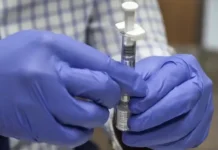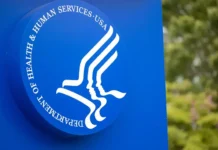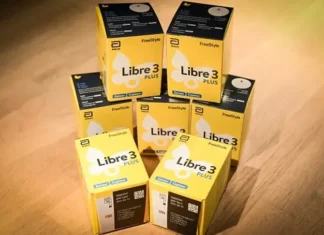
By Christina Maxouris, CNN
(CNN) — As more US state leaders announce hopeful timelines for a return to normalcy, one expert says there’s something that could delay how quickly we get there.
“It’s going to take us that much longer to get back to life as normal, to stop having to wear masks for our protection, if people don’t get vaccinated and we don’t have equitable distribution of vaccines,” infectious diseases specialist Dr. Celine Gounder told CNN on Sunday.
And Covid-19 vaccine equity is key not only for the US, but across the globe, in order to reach the pandemic’s finish line.
“If you have ongoing transmission, replication of the virus in places like India and Brazil, you will have mutant viruses arise, which threatens our own recovery,” Gounder said.
Experts including Dr. Anthony Fauci have estimated between 70% to 85% of the US population needs to be immune to the virus — through vaccination or previous infection — to control its spread.
So far, more than 44% of the population has received at least one Covid-19 vaccine dose and more than 31% is fully vaccinated, according to data from the Centers for Disease Control and Prevention.
And for the ongoing local, state and federal efforts to get more shots into Americans’ arms, now comes the hard part: reaching audiences that weren’t as eager to get vaccinated in the past few months or who may not have had access to a shot.
“We need to be … innovative around both culturally competent education and be thoughtful about where the holes are and where we can get shots in people’s arms,” infectious diseases expert Dr. Mati Hlatshwayo Davis told CNN over the weekend.
Doctor worries whether young people will get a shot
One doctor told CNN on Sunday he’s worried officials haven’t offered strong enough incentives for some Americans to get vaccinated — including younger Americans.
“What I worry about mostly are the young people,” primary care physician Dr. Saju Mathew said. “I see them every day pretty much at work.”
The CDC issued new guidance last week saying fully vaccinated people can unmask at small outdoor gatherings or when dining outside with friends from multiple households — activities the agency said unvaccinated people still need to wear a mask for.
But the guidelines are too cautious, as some unvaccinated Americans are already unmasking outdoors, Mathew said.
“I think that the CDC missed an opportunity to say, ‘listen, we can return to pre-pandemic lives and you can do more if you’re vaccinated,'” Mathew said. “So I think, when the science is there with positive news, we must share that and motivate people to get vaccinated.”
Everyone 16 and older is currently eligible for a Covid-19 vaccine in the US. But polling data shows younger Americans are least likely to get a shot.
A recent Quinnipiac University poll found that 36% of adults under the age of 35 say they don’t plan on getting one.
That’s particularly worrisome for several reasons.
Unvaccinated young Americans have helped fuel case increases across the US — including in several states last month. At that time, CDC Director Dr. Rochelle Walensky warned infections and hospitalizations were going up, predominantly among younger adults who hadn’t been vaccinated.
And in places like Michigan, which battled a violent spring surge, officials reported last month they were seeing younger and healthier Covid-19 patients in hospitals, hit hard by more contagious variants that have been circulating in the US.
‘A ton of young people’ testing positive
Last week, West Virginia Gov. Jim Justice said the state was offering a $100 savings bond to residents 16 to 35 who get a shot, in a push to get more younger residents vaccinated.
The governor said the median age of residents testing positive for the virus has dropped.
“When it recently came down to 44 years of age, we thought, ‘Uh oh. We’ve got a problem. We need to get our young people vaccinated,'” Justice said in a statement. “But now we’re down to 34, and that means we’ve got a ton of young people that are testing positive.”
The governor warned young people that they should be concerned — both about transmitting the virus and about the long-term effects that may linger long past their infection.
That point was also recently made by National Institutes of Health Director Dr. Francis Collins who said the long-term consequences of Covid-19 for young people can be “quite serious.”
“Long Covid represents one more reason to encourage everyone age 16 and over to get vaccinated as quickly as possible,” Collins said.
In Oregon, where the governor recently tightened restrictions for some counties amid a surge in new cases and hospitalizations, another warning for young residents.
“The overwhelming majority of our new COVID-19 cases are from people who have not yet been vaccinated,” Gov. Kate Brown said in a statement. “Younger, unvaccinated Oregonians are now showing up in our hospitals with severe cases of COVID-19.”
The governor urged residents to step up and get vaccinated to help slow the spread of the virus and help the state get on the “quickest path toward lifting restrictions.”
The-CNN-Wire
™ & © 2021 Cable News Network, Inc., a WarnerMedia Company. All rights reserved.















